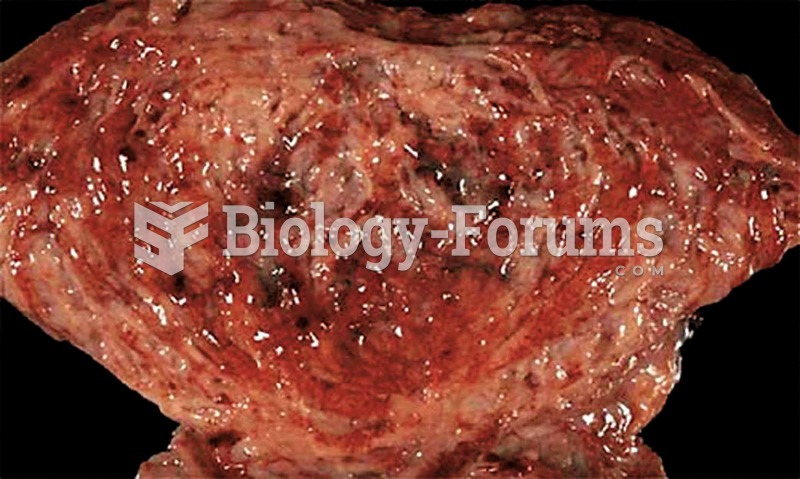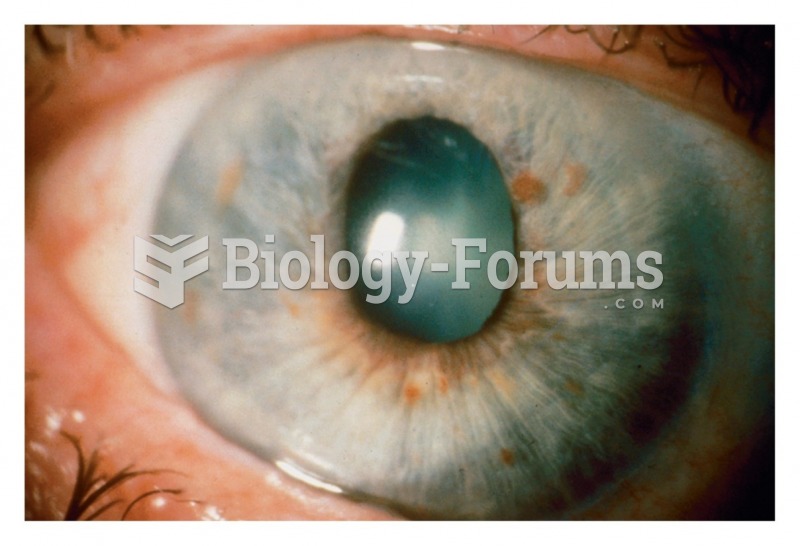|
|
|
To maintain good kidney function, you should drink at least 3 quarts of water daily. Water dilutes urine and helps prevent concentrations of salts and minerals that can lead to kidney stone formation. Chronic dehydration is a major contributor to the development of kidney stones.
The familiar sounds of your heart are made by the heart's valves as they open and close.
Fungal nail infections account for up to 30% of all skin infections. They affect 5% of the general population—mostly people over the age of 70.
Side effects from substance abuse include nausea, dehydration, reduced productivitiy, and dependence. Though these effects usually worsen over time, the constant need for the substance often overcomes rational thinking.
ACTH levels are normally highest in the early morning (between 6 and 8 A.M.) and lowest in the evening (between 6 and 11 P.M.). Therefore, a doctor who suspects abnormal levels looks for low ACTH in the morning and high ACTH in the evening.
 Pancreatitis. Inflammation of the pancreas may be the result of a bacterial infection, trauma, or ch
Pancreatitis. Inflammation of the pancreas may be the result of a bacterial infection, trauma, or ch
 A biological profile from the bony remains of an individual may be preferable to a DNA profile for a
A biological profile from the bony remains of an individual may be preferable to a DNA profile for a





